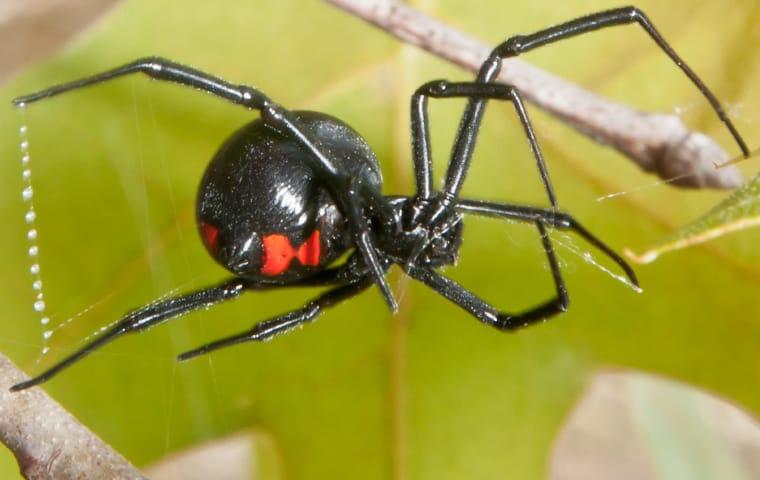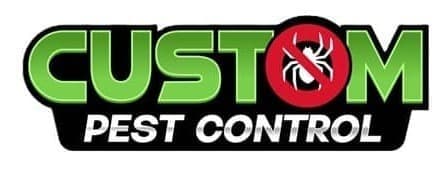A Guide To Black Widow Spiders For Huntsville Property Owners
November 13, 2020
Most spiders are relatively harmless. While they may bite if provoked, the only result is an itchy lump that will heal in time. Some spiders are far more dangerous, however, and keeping them off your property is a much more serious proposition. Venomous spiders like black widows have bites that result in much more than a welt on your skin, so learning how to prevent and react responsibly to an infestation might save you from finding this out the hard way.

Where To Find Black Widows
Black widows are nocturnal hunters that tend to keep to themselves. People know them from their red hourglass pattern on their bellies, but actually spotting a black widow is rare. They like dark, woody areas where they can nap and lie in wait during the day. When people do spot them, they’re usually hanging out on the undersides of porches or crawling around a burn pile. At night, they check their many hunting webs for any catches, which they then inject with paralyzing venom and package in sticky webs for easy consumption.
Dangerous Spider Bites
Black widows are one of the two most dangerous spiders in North America, the other being the equally common brown recluse. While bites are rare, they are more serious than your average house spider bite. If bitten by a black widow, you should seek medical attention immediately since only antivenom can reverse the effect. While it’s best to figure out what bit you as it happens, all of the following symptoms can clue you into a black widow bite:
- Nausea: As venom circulates your body, it will likely induce nausea and vomiting, a much more serious symptom than typically follows a common bite.
- Dizziness: The high blood pressure caused by a black widow’s venom can lead to dizziness or light-headedness.
- Muscle Spasms: A black widow’s bite is designed to paralyze its prey. While this doesn’t have the same effect on us as it does on tiny bugs, the bite can lead to muscle spasms.
Spider Prevention Tips
Since black widows and other spiders feed off other bugs, they are mostly driven onto a property because other pests are already there. Spider prevention is really all about overall pest prevention. Here are some steps you can take to reduce overall bug populations on your property:
- Landscaping: Bugs are attracted to overgrown areas since they provide shelter from predators and easy areas to rest. Spiders also enjoy foliage that provides them with lots of areas to spin webs. You can reduce these harborage areas by keeping your yard well-trimmed.
- Crack Sealing: Small bugs can fit through even the slightest crack or hole in a structure. Making a regular habit of checking for and repairing these faults can help keep bugs out.
- Wood Storage: This one’s more specific to spiders and black widows themselves, as they like to hang out in woodpiles and yard debris. Store wood well away from any structures and clear out leftover yard waste.
Let Us Help Protect Your Property
With the heightened risks that come with black widows, you can never be too cautious. While you can certainly get started on spider prevention on your own, the best course of action is to turn to the professionals. At Custom Pest Control, our staff can provide you with even more tips for how to keep spiders and the pests they hunt out. Our routine and thorough inspections can help determine your level of risk and spot warning signs early. Only this kind of pest control provides true assurances. So what are you waiting for? For total protection from black widows and other invasive pests in Huntsville, call Custom Pest Control today!
